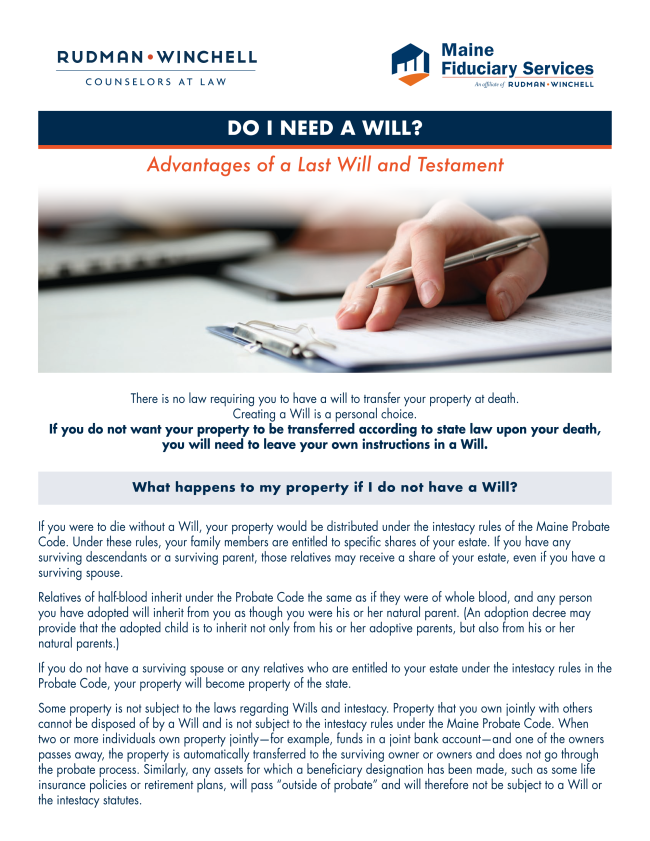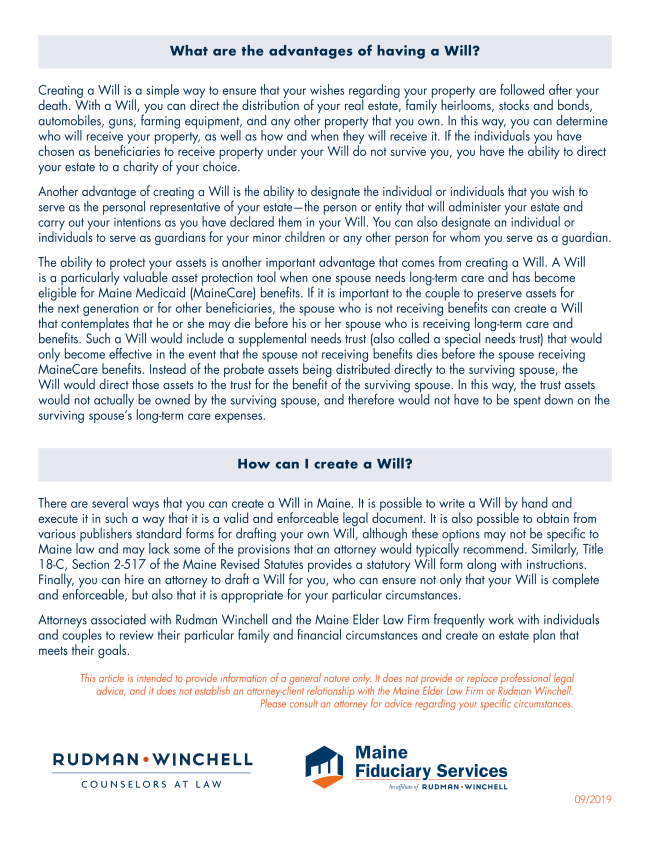Similar Posts
GRANDPARENTS RIGHTS AND DE FACTO PARENTHOOD
The following article was co-written and presented at the Maine State Bar Association’s Family Law Institute by Stephen D. Nelson, Esq. and Anthony A. Trask, Esq. Please note that all citations have been omitted. However, a full copy of the article, complete with citations and footnotes, can be viewed upon request. I. INTRODUCTION Nearly a…
Change in Maine Law Regarding Liability of an Agent Serving Under a Financial Power of Attorney
In a financial power of attorney, one person (the principal) gives another person (the agent) the authority to manage the principal’s property and to make financial decisions for the principal. A financial power of attorney (FPOA) is a very powerful document. An expansive FPOA may give the agent authority that is as broad as or…
The CARE Act: Support for Maine’s Caregivers
Caregiving from family and friends is an invaluable help, particularly for older individuals who wish to continue living in their homes. Fortunately, many Mainers support each other by assisting with the multitude of daily living tasks. According to Valuing the Invaluable: 2015 Update by the AARP Public Policy Institute, 178,000 Mainers each provide an average…
New Federal Firearm Rule Protects Personal Representatives
An upcoming change in federal gun regulations stands to clarify the responsibilities of personal representatives of estates that include certain types of firearms. Early this year, U.S. Attorney General Loretta Lynch signed ATF Rule 41F, which makes significant changes to federal regulations regarding transfers of firearms covered by the National Firearms Act (NFA). The NFA…
Prince may not have had a will. Don’t let this happen to you
The Artist Formerly Known as Prince, aka Prince Rogers Nelson, died on April 21, 2016, purportedly without a Last Will and Testament, or any estate plan, in place, according to documents filed by his sister Tyka Nelson in the probate division of a Minnesota District Court. If that proves to be the case, Prince joins…
Important Developments Regarding the Laws on Delegation of Parental Rights
For various reasons, sometimes parents are unable to care for their children. For example, a child may be taking a trip out of state with a school or extracurricular program and an unrelated adult supervising the trip needs authority to make medical decisions if a problem arises. Other situations might be more long-term, such as…


